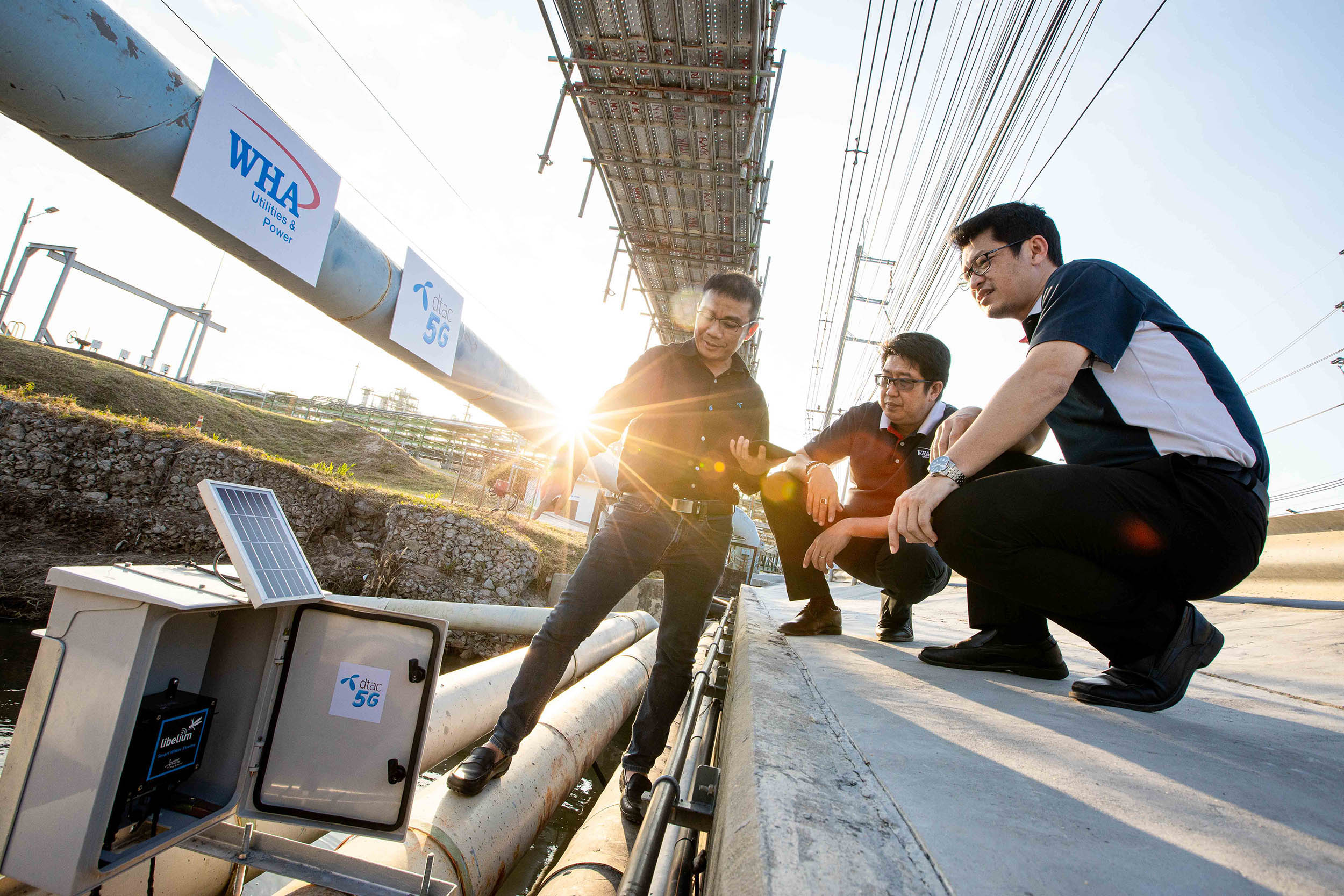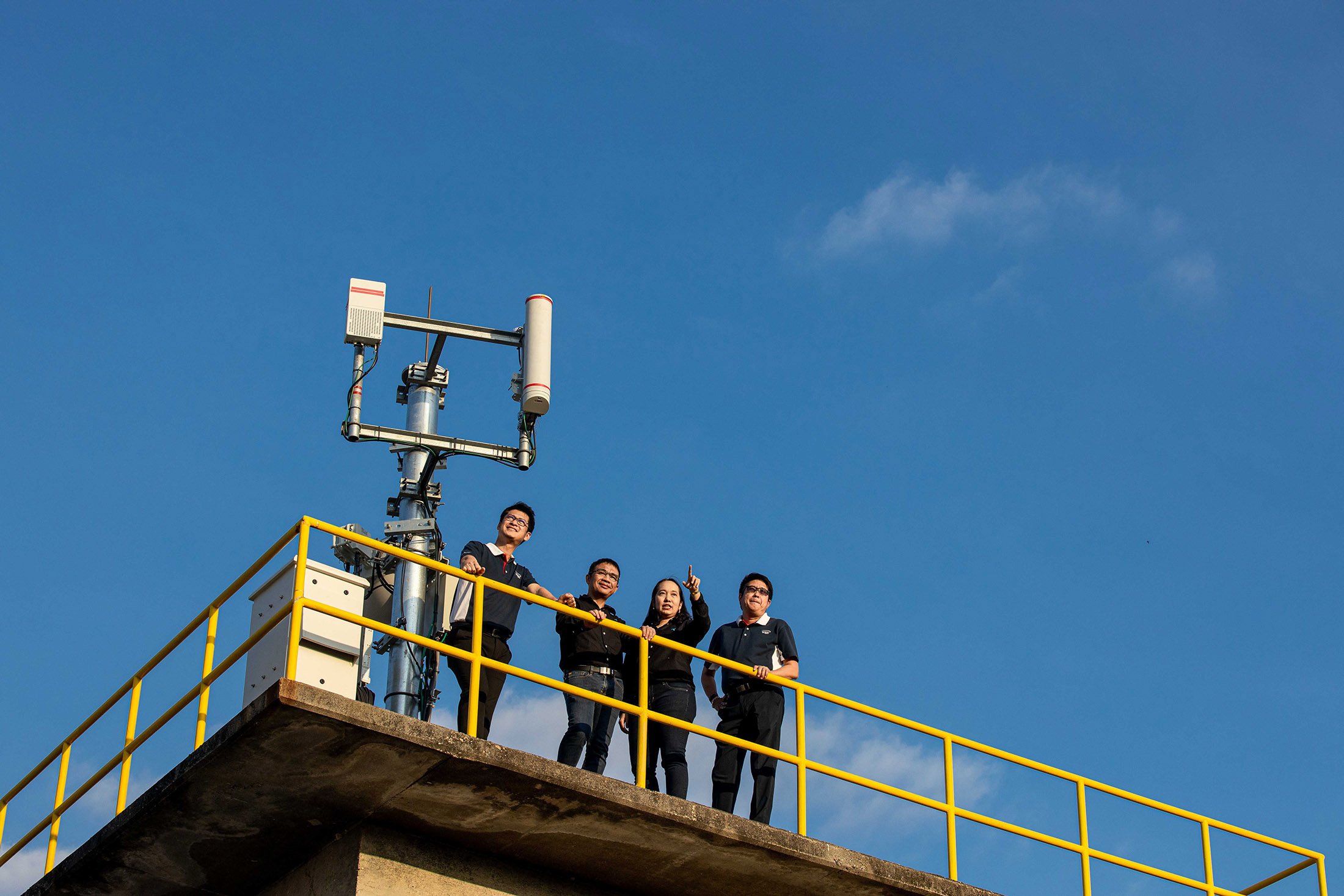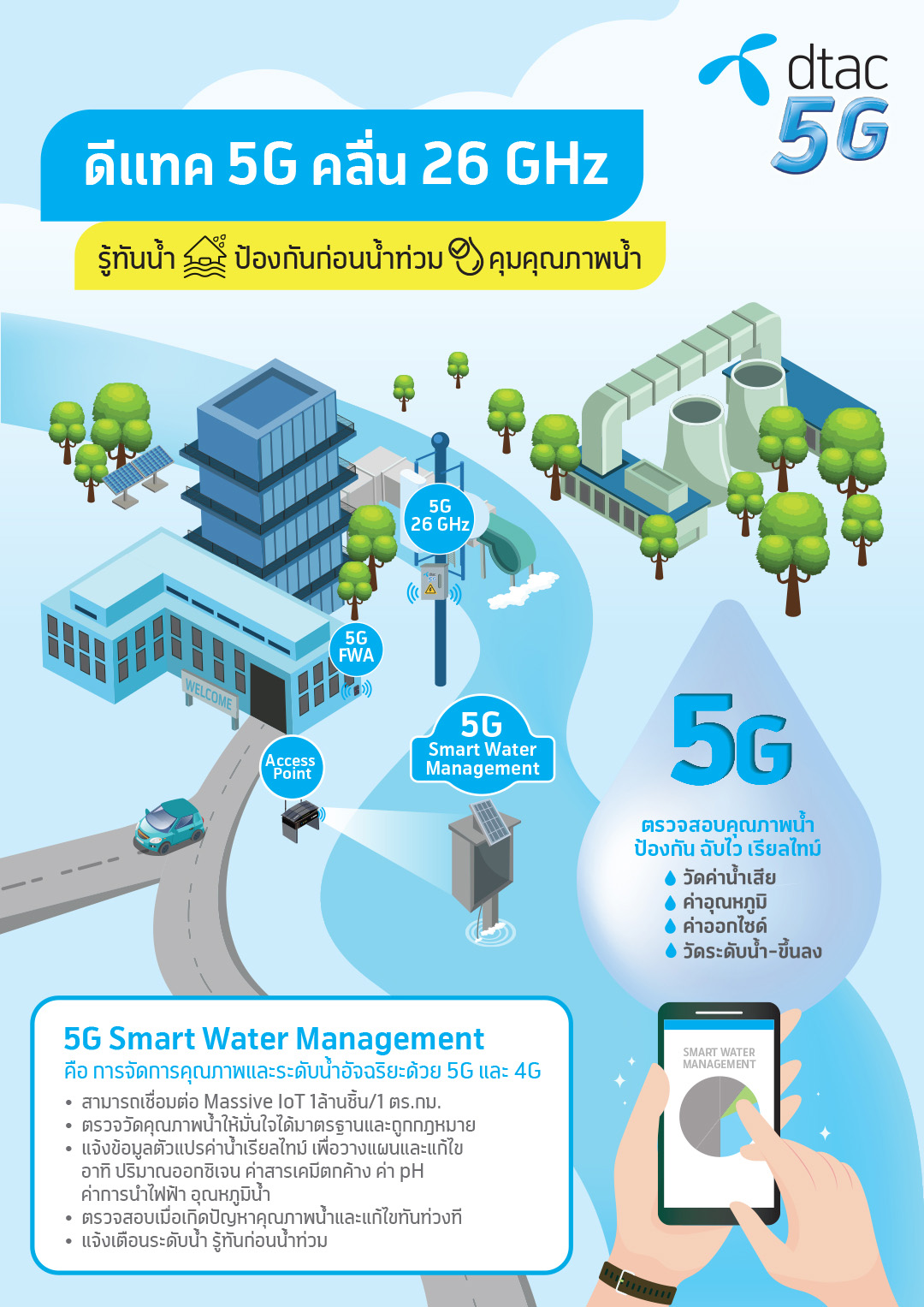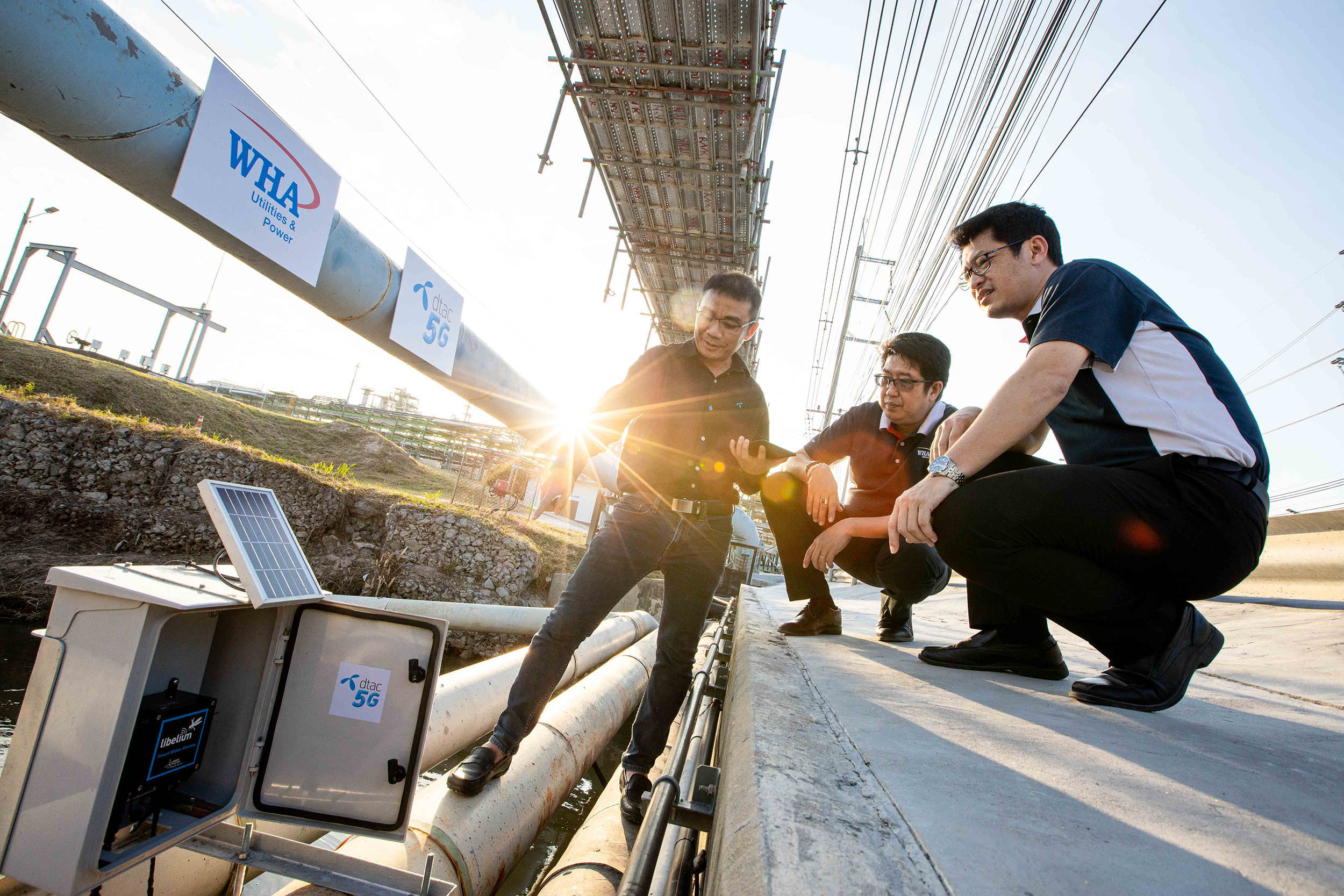The World Resources Institute predicts that climate change and floods could cost 17 trillion USD (approximately 511 trillion Baht) to world economies by the year 2030. The impact of climate change causes more severe droughts which impact industries worldwide, especially water-intensive industries. Without robust water management or a lack of wastewater recycling, a shortage of water could be inevitable.
Water is an essential resource in manufacturing industries and is used in many forms, the first of which is raw water – the basis for producing processed water. Highly refined demineralized water is used in many industries including power generation, petrochemicals, electronics, and food.
Water used in manufacturing processes is called wastewater and needs to go through wastewater treatment as per the Industry Ministry standard. Wastewater standards include conditions such as pH levels in the range of 5.5 – 9.0, a temperature of no more than 40 Celsius, and chemical contamination within standard parameters. Droughts can cause factories to reduce their water use and impact the water pH level. Keeping wastewater within standards requires high-precision recycling treatments. A study revealed that the wastewater treatment industry has been growing by more than 10% per year.*

Wastewater Reclamation for Sustainable Water Resources in the Industrial Sector
To keep up with increasing demands for industrial water treatment, WHA Corporation PCL or WHA Group – a leading solutions provider for logistics, industrial estates, utilities and power, and digital platforms in Thailand – sees water management as the key to its sustainability. WHA Group operates more than 12 industrial estates, covering 68,900 rai of land (approximately 11,024 hectares). To ensure efficient water management and sustainable development, digital solutions are being implemented. The ability to convert wastewater into water resources through recycling or reclamation would help Thailand solve the challenges of wastewater management. It would also help mitigate the water shortage crisis in the EEC region as per the guideline of the Office of the Natural Water Resources (ONWR).

Ms. Jareeporn Jarukornsakul, Chairman and Group CEO, WHA Corporation PCL., stated that adopting 5G technology would help increase capacity in Smart Water Management to effectively serve the customers in WHA industrial estates. The initiative would also contribute to driving the Thailand 4.0 goals, supporting S-curve industries, and attracting foreign investments in the technology sector.
“One of the technologies that helps drive the digital transformation of the industrial sector is 5G by enabling improvement of industrial wastewater management. 5G can improve the accuracy of water quality monitoring for every single factory, and all in real-time. The technology helps increase the capacity of water quality management development within the industrial estates. Currently, WHA Group has a process water production capacity of 294,000 cubic meters per day for their industrial estate customers. At the other end, the combined wastewater produced per day totals 120,000 cubic meters. 5G helps businesses to be confident that their wastewater will be properly handled today and tomorrow when their businesses expand. WHA Group’s goal is for comprehensive management of water as part of its infrastructure development. This goal can be met using smart management supported by a highly reliable network that can also support all the needs of every one of the customers,” he said.

5G IoT for Industrial Estate Water Management Nationwide
To improve water management efficiency, a collaboration began between WHA Group and dtac to introduce a solution with 5G technology. The 5G solution enables the real-time transfer of data from high-precision sensors for timely and efficient water analysis and management. This 5G Smart Water Management relies on Massive Machine Type Communications (mMTC) or Massive IoT. The technology enables the monitoring of water quality for each factory usage, reducing human errors in water quality monitoring, specifically with readings of acidity and alkali levels (pH). The solution also makes use of automated sensor readings of oxygen levels in the water and water levels, with data transmitted via a highly stable and efficient 5G network.
The solution enables continuous monitoring of water levels and helps determine the optimal process of water production. The industrial group requiring the most water is energy, followed by petrochemical, automotive, consumer business, and electronics. However, as industries grow, infrastructure needs to grow with them. dtac 5G is now integral in the management of water in the WHA Eastern Industrial Estate (Map Ta Phut) with a project area of 3,760 rai (60.16 hectares). IoT sensors have been installed and connected via a 5G network to enable the WHA Group to manage water in the industrial estate with optimal efficiency and lower management costs.

Mr. Rajiv Bawa, Chief Business Officer at Total Access Communication PLC or dtac, added that dtac is focused on collaborating with partners to transform businesses with 5G. This is the communication technology that can drive digital transformation for the industrial sector with leading-edge technology to improve competitiveness. One of the 5G use cases is smart water management which will drive the development of infrastructure in industrial estates. This is made possible with real-time data transfer and a fleet of high-precision IoT sensors. The result is improved water management efficiency translating into faster recuperation of investment through lowered operating costs. The next step would be to reproduce the success model in other locations across the country.
“This collaboration will help spark interest from other industrial estates to consider implementing 5G technology on the 26 GHz spectrum or mmWave. This is the suitable spectrum for industrial sector use cases thanks to high-speed data transmission. Improving resources management will contribute to increased competitiveness in the digital era, and it also supports mitigation of the impact of worsening climate change,” he said.
The 5G use case of smart water management is the flagship of dtac 5G technology developed to support the operations of WHA Group Industrial Estates. The solution will be a significant factor in driving the industrial sector and contributing to the growth of the Thai economy which has been impacted by the effects of the COVID-19 pandemic. The 5G technology strengthens WHA Group’s leadership position in Thailand and demonstrates its readiness for regional investments and expansion.


